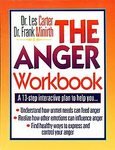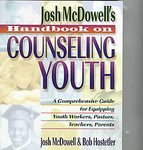|
Manager your AngerFirst: Look within YourselfWhere does my anger come from? Who taught me, by their example, about anger? What situations bring out my feelings of anger? Do my thoughts begin with absolutes such as: Must, Should, Never? Are my expectations realistic or unreasonable? What unresolved conflicts am I facing? Am I reacting to past losses, hurts, or fears? Am I aware of anger's physical signals? (clenched fists, shortness of breath, sweaty palms) How do I choose to express my anger? Am I using anger as a way to isolate myself, or as a way to intimidate others? Am I communicating clearly and effectively? Am I focusing on what has been done to me rather than what I can do for myself? Am I taking responsibility for my emotions and behavior? Do my emotions control me or do I control my emotions?
How do I cope with difficult situations?Below is a list of negative and positive coping strategies. Identify which strategies you use when facing difficult people and situations. 1. Admitting I have a problem 2. Ignoring the problem 3. Finding out more information 4. Acting like I don't care 5. Look for alternatives 6. Acting helpless 7. Talking and discussing 8. Withdrawing 9. Group support 10 Generalizing 11 Seeking advice or help 12 Physical fighting 13 Compromise 14 Escaping with drugs or alcohol 15 Trying to see the other side 16 Running away 17 Thinking about my future 18 Rejecting the other person 19 Physical exercise 20 Being cruel and nasty 21 Share feelings
Take a look at your list. How are your coping strategies working out for you? Most likely, if you have mostly even numbered strategies, which are the negative ones, its probably not working out very well for you. If your strategies are the odd numbered ones, these are the positive, healthy ways of dealing with difficult situations or people.
Internal FocusPeople get angry about a lot of different things. Their spouses, the weather, bad drivers, unfair treatment, being falsely accused, murders, being disrespected, the economy, the price of gasoline, unreliable friends, their parents, their kid's behavior are all examples of what people get upset about. But we have no control of external events or the actions of others. It is not the negative external event that gets us emotional but it is our perceptions and thoughts about the events or people that create our emotional response. The only thing that we really have control over is our thoughts, our emotions and our behavior. Our angry outburst at the guy that cuts us off on the road starts with our thoughts. We say, to ourselves or to others in the car, "That jerk, what a selfish idiot!", "I won't stand for it!" "He's got to understand how he upset me". Our thoughts trigger our emotions such as: fear, frustration, rage and anger. Our thoughts and our emotions combine to drive us to do something about the situation. We may flip him off, try to cut him off or burn with rage until we find a suitable outlet, like kicking the dog or yell at our kids or spouse. Our anger can be managed, if we begin to understand that we have no control of external events, so we might as well begin to manage our emotions through our thought processes. The definition of self-efficacy is the ability to deal with one's environment and to mobilize whatever thinking and behavioral skills needed to manage the challenging situations of life. Another definition reads: An individual's belief that he/she can solve their problems, accomplish tasks, function successfully, regulate one's own behavior and motivate themselves. I think this is everyone's wish and goal in life. Anger management is a fantastic step in the right direction.
|
Books on Anger



